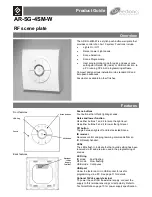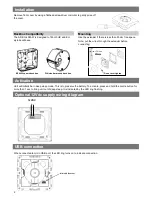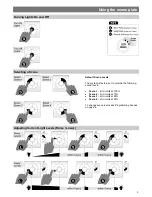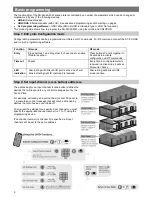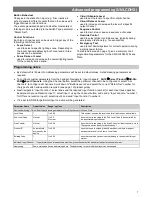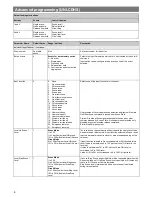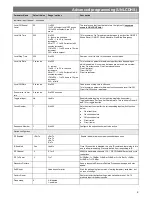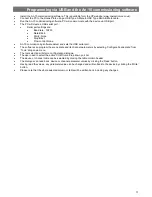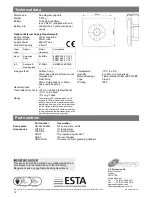
6
Basic programming
The functionality of the AR-SG-4SM-W scene plate is controlled by a number of parameters which can be changed or
programmed by any of the following devices:
UHS4
Infrared Handset
UNLCDHS
Infrared Handset (with LCD). See advanced programming section starting on page 6.
ALC programming software
+ USB cable
(Micro B USB to Standard type A USB. Not supplied).
This product guide shows how to program the AR-SG-4SM-W using the UHS4 and UNLCDHS.
Step 1: Entry into Configuration mode
Step 2: Set input channel (scene button) addresses
The addressing for an input channel (scene button) defines the
devices that will respond to any control messages sent by the
Scene Plate.
For example, activating an input that has its Local Code set to
1, generates a control message that will only be actioned by
devices that also have a Local Code of 1.
To program the settings for a specific input channel you must
specify the appropriate channel number (i.e.1 to 7) using the
programming device.
If no channel number (or channel 0) is specified, all input
channels will be set to the same address.
Configuration parameters can be programmed via Infrared or RF commands. For RF command connect the AT-PC-USB
and run ALC programming software.
Function
IR mode
RF mode
Entry
Press buttons 1 and 2 together for 3 seconds to enable
IR data reception.
Press buttons 3 and 4 together to
3 seconds to activate
configuration via RF commands
Timeout
30secs
Every time a config parameter is
received in active mode it will set
timeout to 10secs.
LED
indication
Fascia Ring will blink until IR port is active. Led1 will
blink indicating right IR command is received.
Fascia Ring will blink until RF
mode is active.

